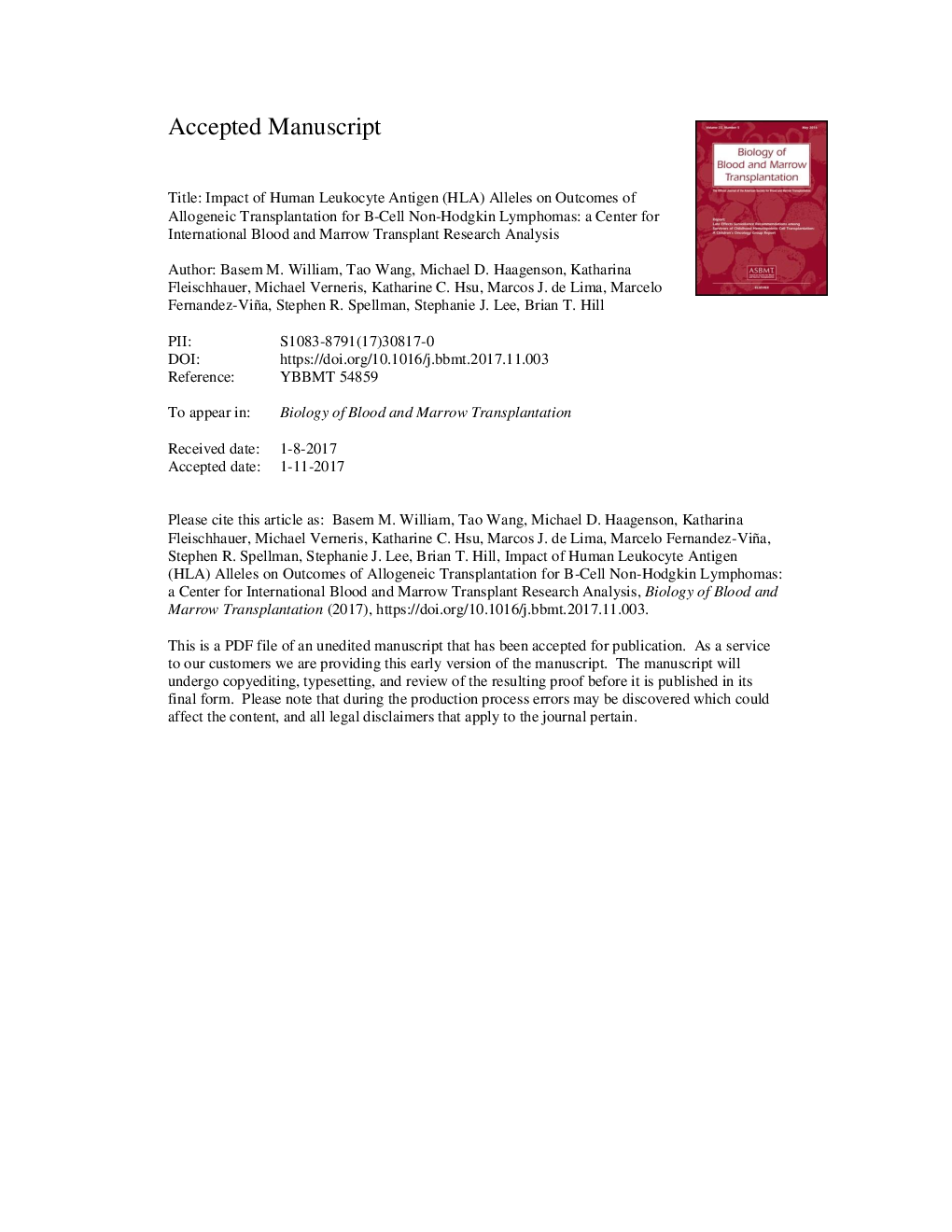| Article ID | Journal | Published Year | Pages | File Type |
|---|---|---|---|---|
| 8430060 | Biology of Blood and Marrow Transplantation | 2018 | 21 Pages |
Abstract
Even in the modern era of targeted therapies, allogeneic hematopoietic stem cell transplantation (allo-HCT) can offer a chance of extended survival in B cell non-Hodgkin lymphoma (B-NHL) patients who relapse after or are deemed ineligible for autologous transplantation. A better understanding of the factors influencing the graft-versus-lymphoma (GVL) response would be useful in identifying B-NHL patients who may benefit from allo-HCT. Based on prior single-center reports, we hypothesized that certain HLA alleles, or haplotypes, may be associated with superior GVL compared with others after allo-HCT. To test this possibility we retrospectively evaluated whether the presence of HLA-A2, HLA-C1C1, HLA-DRB1*01:01, or HLA-DRB1*13 alleles or the presence of HLA-A1+, HLA-A2-, and HLA-B44- haplotypes is associated with outcomes in a cohort of 1314 HLA-8/8 matched sibling or unrelated donor HCT for relapsed/refractory B-NHL. We observed no significant association between any HLA allele or haplotype and overall survival or any of the secondary endpoints. In conclusion, this study represents the largest reported series of allo-HCT outcomes of B-NHL patients based on HLA type. Identification of other variables will be required to delineate the immunologic impact of donor-host interactions on outcomes of allo-HCT for B-NHL.
Related Topics
Life Sciences
Biochemistry, Genetics and Molecular Biology
Cancer Research
Authors
Basem M. William, Tao Wang, Michael D. Haagenson, Katharina Fleischhauer, Michael Verneris, Katharine C. Hsu, Marcos J. de Lima, Marcelo Fernandez-Viña, Stephen R. Spellman, Stephanie J. Lee, Brian T. Hill,
